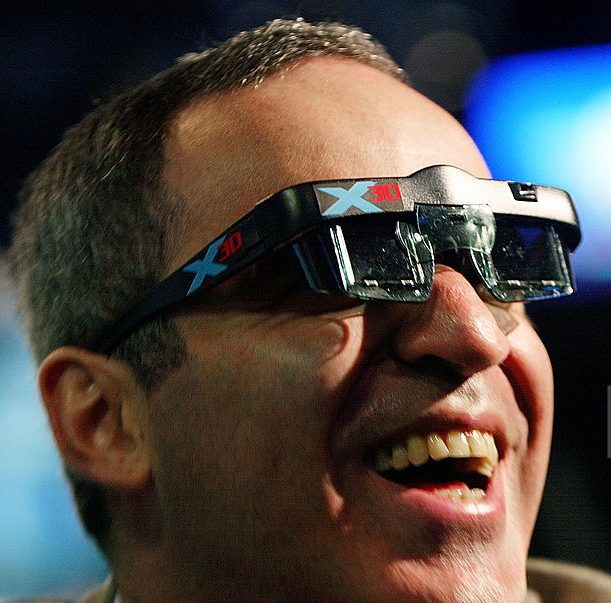Intelligent doesn’t necessarily mean good, in humans or machines.
I doubt I’ve come across any public figure who’s read more books than Tyler Cowen, yet in the country’s darkest hour, he’s pulled his punches with his fellow Libertarian Peter Thiel, who’s behaved abysmally, dangerously, in his ardent Trump support. The Administration, a gutter-level racist group, has apparently allowed Russian espionage to snake its way into the U.S. and is working in earnest to undo American democracy, to put itself beyond the reach of the law. Those who’ve gone easy on its enablers are complicit.
Maybe the machines will behave more morally than us when they’ve turned away from our lessons to teach themselves? Maybe less so?
· · ·
The pro-seasteading economist just interviewed Garry Kasparov, whose new book, Deep Thinking, I’m currently reading. Likely history’s greatest chess player, the Russian was turned deep blue by IBM during the interval between Cold Wars, when he could conjure no defense for the brute force of his algorithmically advantaged opponent.
Initially, Kasparov was too skeptical, too weighed down by human ego, to fully appreciate the powers of computers, but sometimes those who’ve most fiercely resisted religion become the most ardent believers, redirecting their fervent denial into a passionate embrace. That’s where Kasparov seems to be now in his unbridled appreciation for what machines will soon do for us, though I can comment more once I’ve completed his book.
He’s certainly right that much of what will happen with AI over the course of this century is inevitable given the way technologies evolve and the nature of human psychology. With those developments, we’ll enjoy many benefits, but with all progress comes regress, a situation heightened as the tools become more powerful. It’s clear to me that we’re not merely building machines to aid us but permanently placing ourselves inside of one with no OFF switch.
An excerpt:
Tyler Cowen:
A lot of humans don’t play chess, but we’re looking at a future where AI will make decisions about who gets a monetary loan, who is diagnosed as being schizophrenic or bipolar. How cars drive on the road increasingly is controlled by software.
The fact that the decisions of the software are not so transparent — and you see this also in computer chess — how will ordinary human beings respond to the fact that more and more of their lives will be “controlled” by these nontransparent processes that are too smart for them to understand? Because in your book, you have emotional conflict with Deep Blue, right?
Garry Kasparov:
Exactly. I’m telling you that it’s inevitable. There are certain things that are happening, and it’s called progress. This is the history of human civilization. The whole history is a steady process of replacing all forms of labor by machines. It started with machines replacing farm animals and then manual laborers, and it kept growing and growing and growing.
There was a time I mentioned in the book, people didn’t trust elevators without operators. They thought it would be too dangerous. It took a major strike in the city of New York that was equal a major disaster. You had to climb the Empire State Building with paralyzed elevators.
I understand that today, people are concerned about self-driving cars, absolutely. But now let us imagine that there was a time, I’m sure, people were really concerned, they were scared stiff of autopilots. Now, I think if you tell them that autopilot’s not working in the plane, they will not fly because they understand that, in the big numbers, these decisions are still more qualitative.
While I understand also the fear of people who might be losing jobs, and they could see that machines are threatening their traditional livelihood, but at the same time, even these people whose jobs are on chopping block of automation, they also depend on the new wave of technology to generate economic growth and to create sustainable new jobs.
This is a cycle. The only difference with what we have been seeing throughout human history is that now, machines are coming after people with college degrees, political influence, and Twitter accounts.•
Tags: Garry Kasparov, Tyler Cowen

